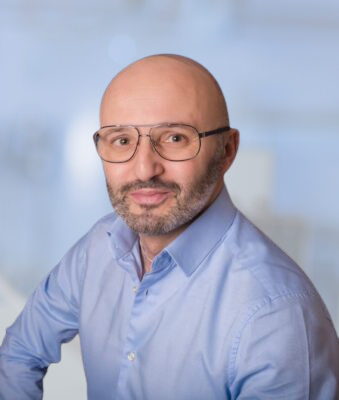Who we are
The SNAProgramme, acronym of Soft-skills Neurolinguistic Advanced Programme, is an innovative learning method designed to bridge the gap in soft skills education for children, parents, and professionals, giving the opportunity to everybody to access education.
Our vision is to make soft skills learning universally accessible, breaking down barriers of cost, time, and personal circumstances.
Regardless of economic background or geographic location, everyone deserves the opportunity to develop essential skills for personal and professional growth.
We believe in creating equal opportunities for all, as learning is a fundamental right.
Why SNAProgramme
The SNAProgramme is the only method that enables parents and children to learn together, creating a unique opportunity for shared growth.
By focusing on the development of essential soft skills — such as communication, adaptability, and emotional intelligence — the programme equips both adults and children with tools that deliver long-term, tangible benefits:
Stronger Career Prospects: Stand out in the job market and reduce the stress of job hunting by becoming more attractive to employers.
Higher Earning Potential: Increase your chances of reaching a €100,000+ annual salary.
Faster Career Advancement: Accelerate your path towards management and leadership roles.
Entrepreneurial Opportunities: Gain the confidence and skills to launch innovative ventures in a world full of possibilities.
Global Opportunities: Soft skills are key to accessing roles worldwide, opening doors to international careers.
Significant Cost Savings: Investing early in skill development can reduce the need for expensive future education — MBA programmes alone can range from €15,000 to €20,000.
This programme doesn’t just educate — it empowers families with a lifelong advantage.
-
Recent research [1–4] shows that soft skills will enable the next generation to navigate the complexities of a changing economic landscape, to innovate, and to build meaningful connections in their personal and professional lives.
1. Lyu, W., & Liu, J. (2021). Soft skills, hard skills: What matters most? Evidence from job postings. Applied Energy, 300, 117307
• This study analyses job postings to determine the relative importance of soft and hard skills in today’s labour market. The findings suggest that soft skills such as communication, adaptability, and teamwork are increasingly prioritised by employers, often more than technical skills. This supports SNAProgramme’s emphasis on developing essential interpersonal and cognitive skills that improve employability.
2. Cegolon, A. (2023). Soft skills and general education. Formazione, 23, 112–122.
• This paper discusses the integration of soft skills into general education, highlighting their importance in fostering critical thinking, problem-solving, and adaptability in students. The research reinforces SNAProgramme’s interdisciplinary approach, which blends traditional subjects with interactive and experiential learning to develop well-rounded individuals.
3. Bholane, K. (2022). Soft Skills for Today's Business World.
• This book focuses on the growing necessity of soft skills in the modern business world, particularly in leadership, negotiation, and teamwork. It argues that professionals with strong soft skills are more likely to advance in their careers and perform better in team environments, aligning with SNAProgramme’s mission to provide tools for career progression.
4. Heckman, J., & Kautz, T. (2012). Hard Evidence on Soft Skills. Labour Economics, 19, 451–464.
• Nobel Prize-winning economist James Heckman and Tim Kautz demonstrate that soft skills, such as persistence, conscientiousness, and social adaptability, are strong predictors of career success, income, and overall well-being. Their research provides quantifiable evidence that supports the need for structured soft skills training, making SNAProgramme’s methodology particularly relevant.
5. Mayer, R. E. (2009). Multimedia Learning.
• Mayer’s Cognitive Theory of Multimedia Learning shows that combining words and images enhances comprehension and memory retention. SNAProgramme leverages this by using visual storytelling, concept associations, and interactive learning methods.
6. Heckman, J. J., & Kautz, T. (2012). Hard Evidence on Soft Skills. Labour Economics, 19(4), 451–464.
• Nobel Prize-winning economist James Heckman demonstrated that soft skills (like communication, adaptability, and problem-solving) are as critical as cognitive skills for success in education, employment, and life outcomes. SNAProgramme prioritises soft skills development, reinforcing their long-term impact on career and personal growth.
7. Paivio, A. (1971). Imagery and Verbal Processes.
• Paivio’s Dual Coding Theory suggests that information is better retained when presented both visually and verbally. SNAProgramme integrates structured visuals, memory techniques, and neurolinguistic elements, reinforcing learning through multiple cognitive channels.
8. Ebbinghaus, H. (1885). On Memory: Investigations in Experimental Psychology.
• Ebbinghaus’ research on the forgetting curve shows how people quickly forget new information unless reinforced through repetition and meaningful associations. SNAProgramme’s grotesque storytelling and interconnected visuals help counteract this effect, making knowledge more durable.
9. Mayer, R. E. (2021). Multimedia Learning (3rd ed.). Cambridge University Press.
• Richard Mayer is a renowned educational psychologist known for his work on Multimedia Learning Theory, which explores how people process information more effectively when combining words and images. His research demonstrates that dual-channel processing (visual and verbal) reduces cognitive overload, enhances comprehension, and improves long-term retention. This principle supports SNAProgramme’s approach of integrating structured visuals and storytelling to simplify complex topics and make learning more engaging and effective.
-
In a world saturated with AI apps that support learning by providing instant answers and based on “surface” learning, SNAProgramme stands out by promoting deep, human-centred learning. Rather than delivering quick solutions, it helps you develop critical thinking skills, build connections across disciplines, and create mental scaffolds—memory structures that support long-term retention. Through visuals, grotesque stories, layered explanations, and interactive activities, learners engage in a process that makes knowledge truly their own. Once internalised, these scaffolds are no longer needed, leading to real independence and mastery. SNAProgramme doesn’t just teach facts—it builds minds that think, question, and grow. SNAP is your coaching partner.
Meet The Team
Dr Roberto Castangia
CO-FOUNDER
Dr Roberto Castangia has been working for over twenty years as a business founder, director and independent consultant in the food, pharmaceutical and biotechnological sectors. His proven experience in multinational, small and medium-sized enterprises, focuses on commercial growth strategies, business development and successful team building, generating multi-million-dollar sales. As communication expert, he has developed and implemented numerous training programmes, educating dozens of sales teams worldwide. His profound interest in the technical-commercial sector contributes to the success in building companies that drive sustainable growth through people and processes.
Dr Mattia Cassanelli
CO-FOUNDER
Dr Mattia Cassanelli has been working for ten years as a trainer and technical sales consultant in the food, pharmaceutical and biotechnological sectors. The commercial experience combined with a highly specialised scientific background has allowed the development of commercial agreements with over 500 customers all over the world, involving small companies to large corporations. During his career he has supported and trained dozens of professional figures, such as university students, operators in the tourism-hotel sector, freelancers and commercial professionals. The field of interest focuses on technical-scientific aspects and soft skills, with the aim of catalysing professional growth in dynamic and cooperative environments.



